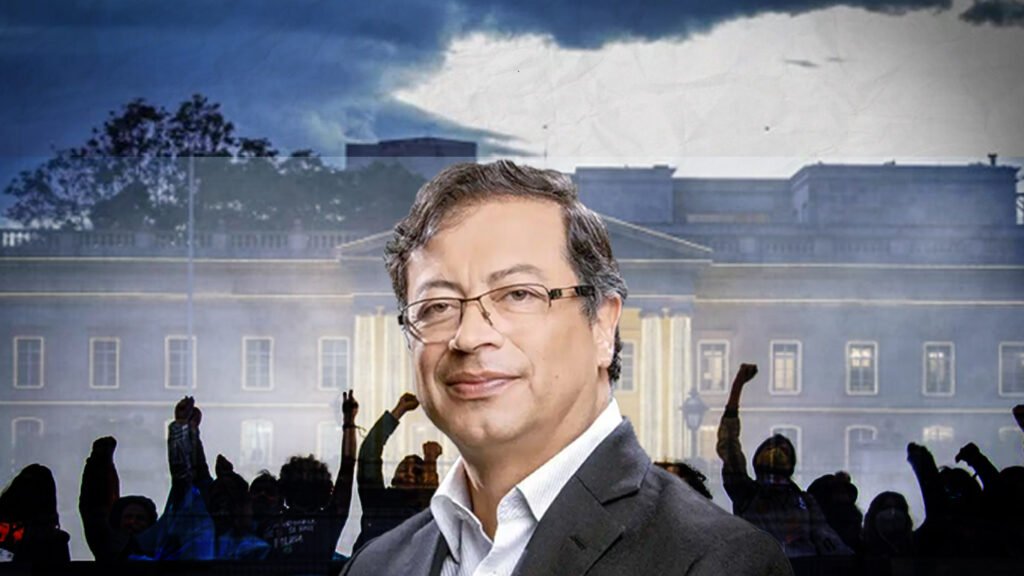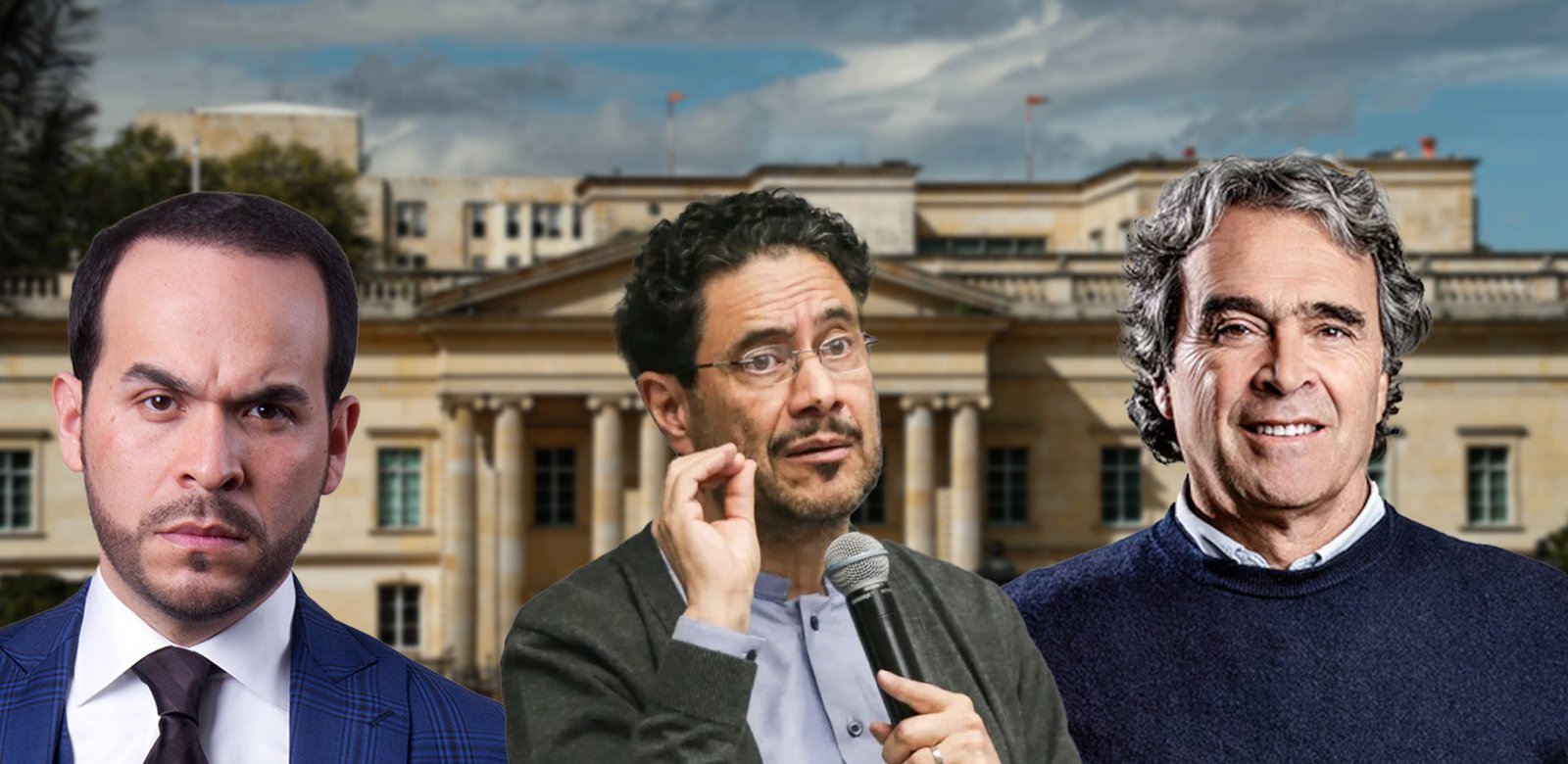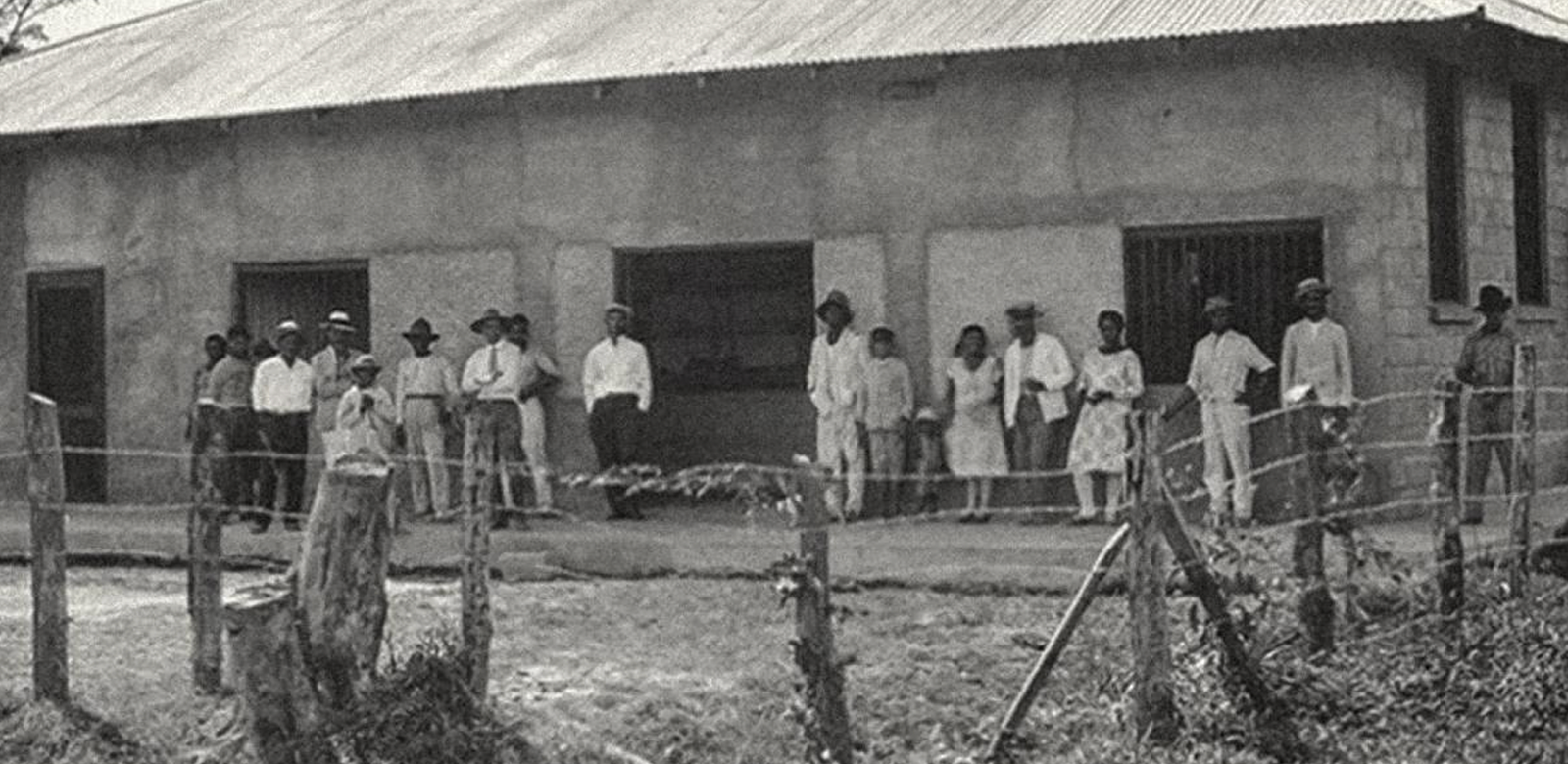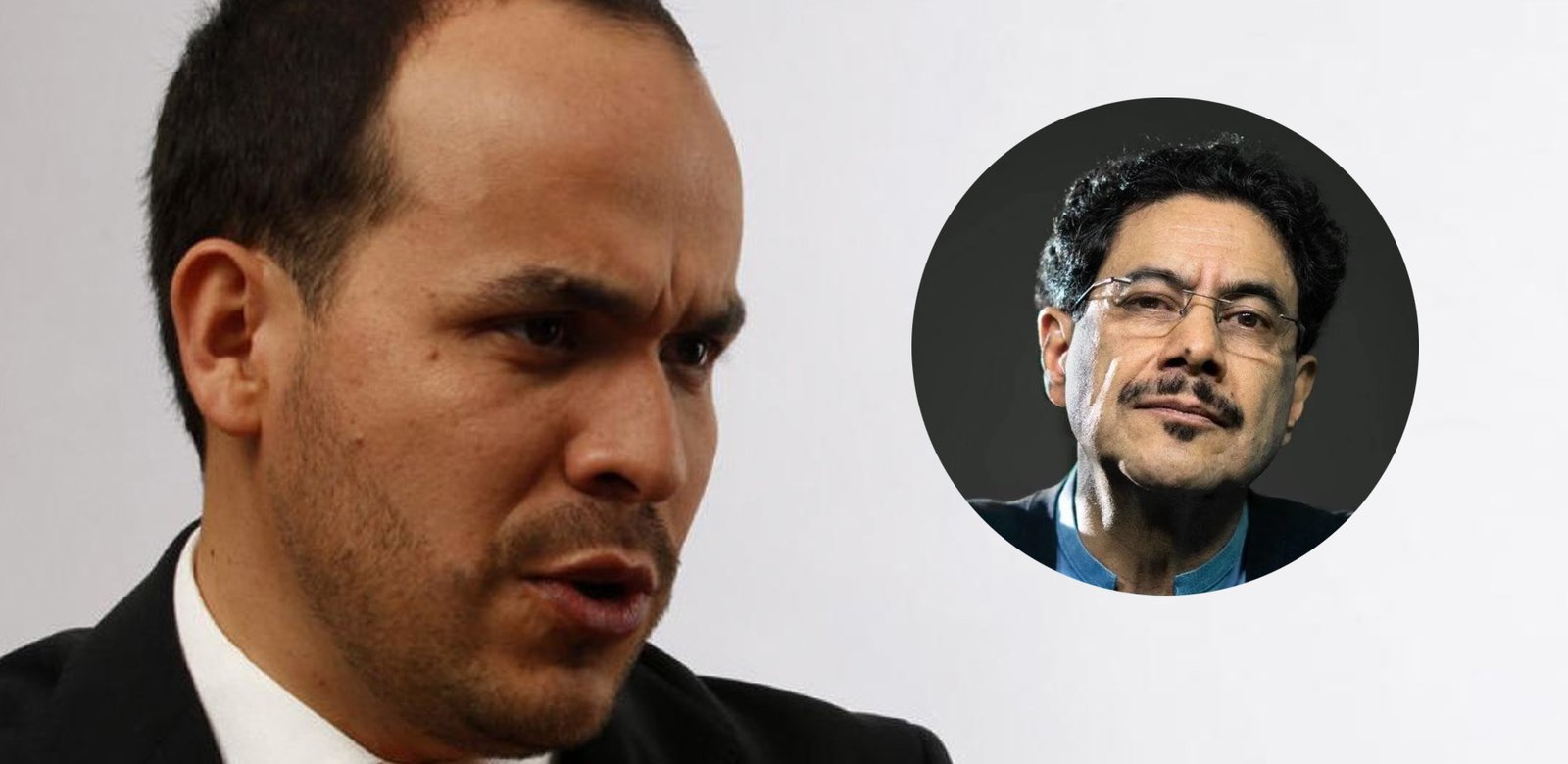By: Daniela Garzón, National ResearcherResearch Line on Democracy and Governance
Translation by: María Victoria Ramírez

Gustavo Petro and Francia Márquez achieved an unprecedented and historic victory for the Colombian left political wing. With approximately 11,185,671 votes, according to the pre-count of votes in 98.86%, corresponding to approximately 50.49% of the total number of voters, thePacto Histórico (PH) will arrive at the Government Palace (Casa de Nariño) after a particularly intense campaign in recent weeks, in which all sorts of dirty strategies were revealed, but also in which Rodolfo Hernández, his opponent, failed to collect all the votes from Federico Gutiérrez, the right wing candidate that run the competition in the first round. The path for Petro will not be easy, since his government program is very ambitious. It is centred on public systems in all sectors and proposes substantial changes, including a tax reform of 5.5 points of the Gross Domestic Product (GDP) per year.
His government program entitled “Colombia, world power of life” does not include the most controversial idea he launched during his campaign, that of declaring a state of economic emergency to address the problem of hunger in Colombia. According to the statements he gave Blu Radio (a Colombian broadcast station) at the time, “the conomic emergency could empower the State to buy crops from peasants, small and medium-sized agricultural food producers, protect food production in Colombia”
The state of economic, social and ecological emergency is one of the three types of states of exception contemplated by the Colombian Constitution, and according to it, it can be declared by the president, if events occur that disturb, or threaten to do so imminently, the economic, social and ecological order of the country or that imply a public calamity. This state allows the president to issue decrees with the force of law, for a maximum of thirty days and can declared only three times a year. The decrees have automatic control of the Constitutional Court.
On the other hand, Petro has also begun to talk about a “Great National Agreement” to, as he explained last Friday, accompanied by a good part of the people who gathered in his campaign, “build unity within diversity (…) a multi-coloured plural agreement”. According to his head of debate and former secretary of President Santos, Alfonso Prada, the idea is to continue the dialogue on the proposal for that national agreement.
Now, of the proposals included in the government program of the Pacto Histórico, the most important, challenging and on which they will have to start working from August 7 are:
1. Tax reform
Colombia constantly makes tax reforms. Only during the government of Iván Duque three tax reforms were processed and one was withdrawn without having passed through Congress, after a few days of national strike. The meeting place of multiple experts has been the lack of “a structural tax reform” that attacks special tax treatment, evasion, and focuses on progressive taxes, that is, those who seek to make those who have more pay more.
The proposal of the PH program includes gradually dismantling tax benefits “without economic justification”, with the promise of advancing in the gap between what someone should pay and what they actually pay.
It also includes eliminating schedular income —those incomes from interest, financial returns, leases, royalties and exploitation of intellectual property— to collect the same taxes on “labour income, dividends and occasional profits”. Another of the issues addressed is forcing companies to distribute dividends “in a percentage close to 70%” and taxing them. It is also promised not to extend VAT to the family basket.
According to some analysts, this proposal aims to collect what other tax reforms have not collected in the past, which could be unfeasible, and even if they intend to put the tax burden more on individuals than on companies, it would be important to look at the magnitudes of the same. The government program does not include a controversial proposal that Petro has repeated over and over again, that of taxing “the four thousand richest people in Colombia”.
2. Employment
In terms of employment, the proposal of the PH is to carry out a guaranteed employment policy in which the State is an “employer of last instance”, as an alternative to the approach of unemployment subsidies and labour flexibility. As described, the program “will recognize activities such as those associated with care work” and will be implemented with a “basic salary for those who cannot find work in any other way.” The program would have a countercyclical application, that is, when there are periods of economic contraction it will expand and when there are periods of prosperity it will contract.
This type of guaranteed work program aims to offer a solution to inflation and unemployment, and has as its antecedents programs such as Heads of Households Unemployed (), launched in Argentina in 2002.
3. Energy Transition
It is perhaps one of the neuralgic points, along with the tax reform, and in which more things are proposed within the PH program. Here the objective is to move towards an economy that does not depend on “the extractivist model”, that is, on the exploitation of raw materials, particularly oil and coal; and democratize the use of clean and renewable energies.
The riskiest actions in terms of the proposed energy transition are not granting new licenses for hydrocarbon exploration or open-pit mining, prohibiting fracking and allocating the extraction of current fossil fuel reserves to domestic consumption. Neither will new reservoir hydroelectric plants be built.
Likewise, it is expected to lay the foundations for the energy transition, creating a fund for it with resources from royalties, and those from the elimination of tax benefits for the hydrocarbons, coal mining and hydroelectric sectors. In this way, it is expected to lead the replacement of the public vehicle fleet, encourage the use of electric vehicles, focus on Ecopetrol the research, science and development of technologies for the transition towards clean energies and create the National Institute of Clean Energies.
Perhaps the most controversial aspect of this point is to stop new oil exploration, since not only is it not easy to replace the abundant energy that comes from crude oil, but fossil fuels, according to experts such as Esteban Rossi, “attract hundreds of millions of dollars in foreign investment and pay taxes”. Ecopetrol is one of the companies that reports the most profits to the Colombian State.
4. Land
One of the main problems Colombia has is the scandalous concentration of land ownership, which is calculated at 0.82 of the Gini coefficient, where 1 means everything in the hands of one person and 0 perfect distribution. According to the National Centre for Historical Memory “there is no greater problem in Colombia than agriculture and the equitable distribution of land (…) which deepened with the armed conflict.”
The program of Petro and Márquez at this point aims to “leave behind the unproductive large estate” based on the democratization of “space, credit and knowledge”, and take as a pillar the comprehensive rural reform that was negotiated in Havana with the FARC
The program talks about an agrarian reform that gives priority to land titling in the name of rural women, of carrying out the multipurpose cadastre and taxing unproductive land. According to what is stated in the program, the right to land for also rural families and the formalization of property will be guaranteed, and the step from “the underuse or inadequate use of the land for extensive livestock farming, towards (…) the agrifood production and (…) agroforestry-pastoral systems”. In the same sense, they would create the Land Fund, the agrarian jurisdiction, the Registry of Subjects of Planning to contribute “to the resolution of conflicts and the legal security of tenure”.
5. Health
Regarding the health system, the proposal is based on the regulation of Statutory Law 1751 of 2015 for creating a “single, public, universal, preventive and predictive, participatory, decentralized and intercultural system that does not depend on the capacity of payment (…) nor the administrative and financial intermediation”. As proposed, progress will be made to a single system “financed by progressive taxes and equitable contributions” through a Single Health Fund that would replace the current Administrator of Social Security Resources in Health (ADRES).
Another proposal is to bet on a preventive health model, to create medical teams to visit homes, kindergartens, schools and colleges, to solve most health problems “in the respective territory.” While reforms of a public health system progress, they hope to install medical equipment for the preventive and predictive health model and advance in the recovery of public hospitals.
Petro has been an opponent of the law that regulates health in Colombia, Law 100, and of the health system that today is based on the EPS (Health Promotion Companies) intermediary functions, so his proposal is based on removing most of the functions current functions EPS have.
6. Pensions
The PH proposal is based on recognizing the pension as a right that “ensures a decent life for all people of retirement age”, including those who did not contribute. This implies moving towards “a mostly public unified pension system”. In Colombia there are two pension regimes in force, the Media Premium Regime, which is public and administered by Colpensiones, and the Individual Savings Regime (RAIS) in the hands of private pension funds.
The Petro and Márquez program emphasizes the public system and hopes to transfer resources from the private to the public system to release around 13 billion pesos from the government budget, since hundreds of contributors who are currently in the RAIS would go to the Colpensiones regime.
This would be done through a “universal public system of pillars based on social solidarity”, which would be reached through a pension reform, and would be organized “through non-contributory, contributory and complementary type pillars”.
In the basic solidarity pillar they would guarantee a pension bonus of half a minimum salary for those who do not have a pension and in the contributory pillar those who contribute on the basis of up to 4 current legal minimum wages would be obliged to contribute to Colpensione, from then on the contributors they could make a “free choice” of contribution regime. The program also ensures the pension age will not be increased.
7. Education
The program expects Colombia to become a knowledge society, strengthening the public education system, with free public higher education.
Universal and free access to “comprehensive care” for early childhood is projected, through a national care system, which combines support for home care with the network of nursery school. They hope to progressively expand coverage until reaching 2.7 million boys and girls under the age of three.
As for children and adolescents of school age, they propose to progressively extend the educational day, through the “active search for the out-of-school population, transportation (…), adequate food, expansion and improvement of infrastructure (…) and training of the teachers”. They also hope to transform educational models and curricula “from the voice of the territories and all regional diversities.” They intend to put an end to school dropout after the 9th grade, for which the 10th and 11th grades will become a transit “to the university, the SENA (National Learning Service), the Normal Schools (The normal school in Colombia is a public system schools to train high school teachers ), the technical centres” etc.
However, in terms of higher education, a progressive transition to access to “public, free and quality education at the technological and university level” is planned. For this, the creation of a national higher education system is proposed, which implies raising the public budget for the entire educational system. As for ICETEX (The Colombian Institute of Educational Credit and Technical Studies Abroad) , they would transform their “banking logic” and create a Rescue Plan to free their users from debt, while changing their focus to finance “undergraduate and postgraduate studies abroad.”
8. Fight against corruption
On the topic of fight against corruption, the PH commits in its government program to respect the system of checks and balances and restore the balance and independence of public powers. It proposes a justice reform that has as pillars “judicial independence, meritocracy, administrative and budgetary autonomy” and that the election of the attorney general be based on merit and be independent of the government in power.
Likewise, it proposes a reform to the Attorney General’s Office and the Comptroller’s Office that eliminates duplicate functions and the “inefficient and costly national and territorial payrolls.”
It hopes to strengthen the administrative career, eliminate precarious hiring and guarantee the continuity of work teams in the State, putting an end to outsourcing.
Apropos the electoral system, he proposes to reform the election system of Congress, so that citizens can demand accounts. In the same way, it would guarantee the public and “rational” financing of electoral campaigns, it would promote the reform of the Registrar’s Office and the National Electoral Council, and the creation of an Electoral Court.
It also proposes promoting participatory budgets and “access to public information on the entire cycle of resource management at all levels of the State” and promoting legislation to protect those who report corruption.
9. Security, armed forces and police
About security, the PH says will fully comply with the peace agreements with the FARC and it will resume negotiations with the ELN. Also, through dialogue and submission to justice, it intends to dismantle organized crime, multi-crime groups and organizations linked to drug trafficking.
The program acknowledges the war on drugs and the prohibitionist approach as failures. Hence, it proposes moving towards an agenda based on human rights, “without criminalizing growers”, prohibiting the aerial spraying of glyphosate, and proposing a program for the substitution of land and economies as part of a “new model of productive economy”
Likewise, it hopes to transform the approach of “elimination of the internal enemy” to one based on national sovereignty and the care of life. They say that it will advance in the “demilitarization of social life” for which it proposes that civil authority prevail over military authority and replace the “national security doctrine” with a new national defence policy.
Military service would no longer be compulsory and the promotion system would be modified so that the lowest-ranking members of the Armed Forces (FFAA) could be promoted. Similarly, the PH is committed to promoting the “elimination of military criminal jurisdiction” and to severely punish “gender violence within the Armed Forces.”
As for the Police, he hopes to relocate it under the Ministry of the Interior or Justice, redefine its functions and priorities, dismantle the Mobile Anti-Riot Squad (ESMAD) and move towards being a force “oriented towards the peaceful and intelligent solution of conflicts”.
It is also proposed to restructure the National Protection Unit so that it is dedicated to anticipating and preventing attacks on social leaders, and in terms of their protection, setting up a “monitoring system and attention to retaliation for complaints.
A Comprehensive Human Security Program would also be created for communities and social organizations “in the territories” based on “intercultural dialogue strategies.”
As of August 7, Colombia will have a left-wing president for the first time, who in his government program proposes to change a good part of the political approaches that have been used and consolidated in recent times. It is an ambitious program that will require a high budget and governance in Congress.






